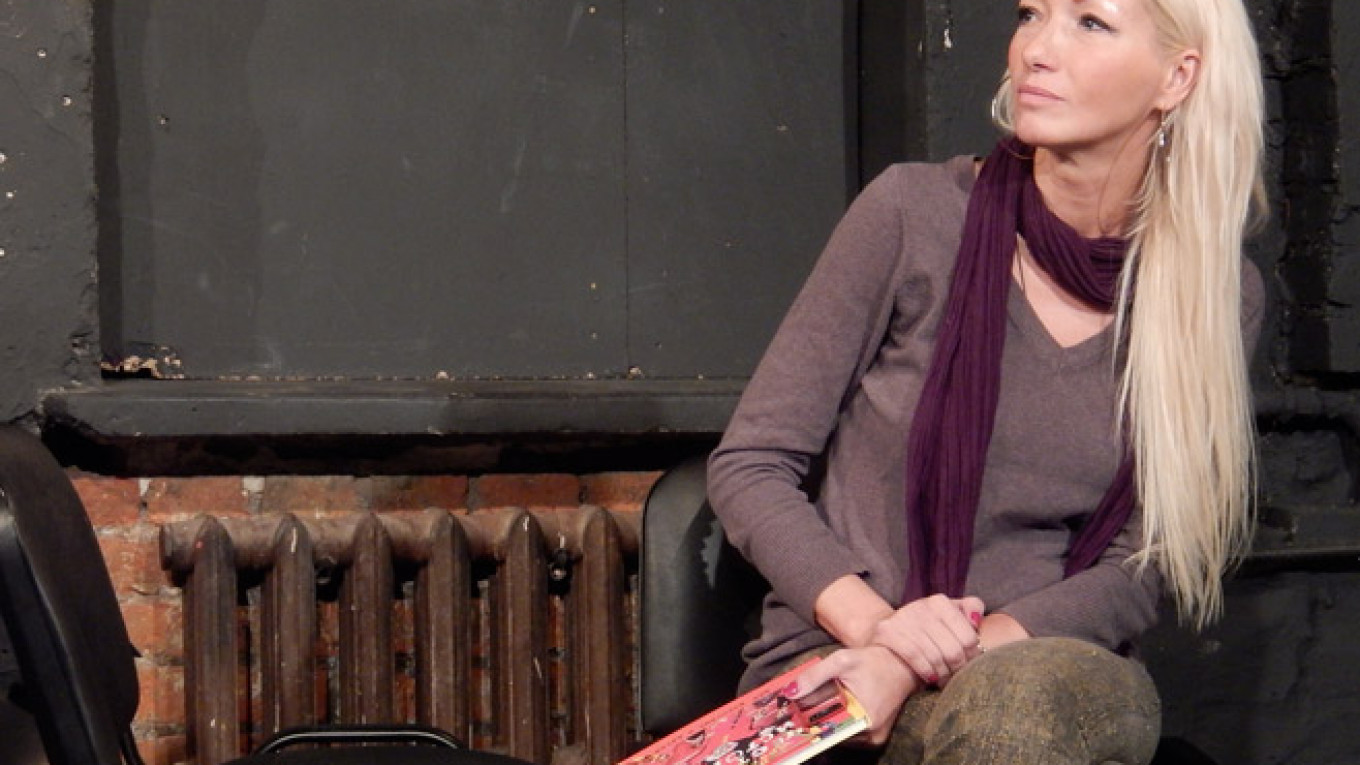It has been an astonishing run. But doesn't every run come to an end?
The number of major playwrights that Russia put up over the last 15 to 18 years may make all other eras in the history of Russian drama pale by comparison. If this hasn't been a golden age, then quickly sell off your hoard because gold is no longer a standard.
It began with Olga Mukhina's "Tanya-Tanya" in 1996. For the first time in nearly a decade a consensus was reached: A living author had written a very good play. The floodgates weren't raised, but everyone sensed something had changed. Maksym Kurochkin's "Kitchen" came along in 2000 like The Beatles' "Maxwell's Silver Hammer," killing off any lingering doubts that contemporary drama lacked power, scope, subtlety and an ability to draw large crowds.
That's when the floodgates blew. Vasily Sigarev's "Plasticine" knocked socks off in 2001, followed by the banner year of 2002 with the Presnyakov brothers' "Playing the Victim," Ivan Vyrypayev's "Oxygen" and Mikhail Ugarov's "Oblom Off." The appearance of the brothers Vyacheslav and Mikhail Durnenkov in 2005 was a watershed, as was the appearance of their Tolyatti neighbor Yury Klavdiyev in 2006. The run of major discoveries continued with Pavel Pryazhko and his play "Panties" in 2007, Yaroslava Pulinovich's "Natasha's Dream" in 2009 and Yelena Gremina's "One Hour Eighteen" in 2010.
And I'm just skimming off the top.
So, what could possibly bring this juggernaut to a halt? Virtually every writer mentioned, with the exception of the Presnyakovs, continues to turn out new work regularly, while interesting newcomers like Lyuba Strizhak and Valery Pecheikin join their ranks. What's to worry?
The first thing that comes to mind is the recent law banning obscenities in artistic works. One of the great achievements of drama of the 2000s was that it liberated Russian stage language from old taboos. That's not just depriving a writer of a few choice lexical items, it's more about putting a grumpy-faced censor into his or her head. It's a lovely way to mess with the fragile process known as the creative act.
Next you take away money and access to distribution. Moscow's Teatr.doc, ground zero for many of the best plays of the last decade, has declared that it will no longer be able to compete for government grants for its innovative festivals, readings, seminars and productions. What will happen to the writers Doc has nurtured and the plays it developed?
Finally, toss a shooting war, almost a civil war, into the mix. The patently absurd Russia-Ukraine conflict has wreaked havoc on those in the artistic community, traumatizing them in ways that may never heal.
So you've planted the seed of doubt in the writer's head, you've cut the flow of sustenance for the work, and you've divided former friends and colleagues into warring factions. That's a bad omen for anyone thinking about growth and progress.
The avant-garde led by the new playwrights of the 2000s was dubbed "new drama." It's an amorphous phrase that causes as much confusion as clarity. But there is no denying that the bold, iconoclastic writers who tilled new ground by stretching the limits of language, by introducing controversial new themes, and by expanding the genre of drama to include many methods heretofore unknown in Russia, had, indeed, done something new, and their business was drama.
The brash plays of the Presnyakovs, Sigarev, Kurochkin, Klavdiyev and Pryazhko though differing among themselves, occupied a unified territory of works that challenged much that came before them: value systems, manners of style and senses of propriety. They harnessed their arrogance and anger for the sake of art. They ridiculed the easy, the lazy and the commonplace. They sought new approaches to moral problems, often on the burned-out ground that their characters inhabited.
Do I think that all this will now come to a halt? Emphatically no. But I do think we are leaving — or have left — an era and are moving on.
The community of theater writers is under attack; key values and aspirations no longer unite it. Forget the fact that old friends may now be enemies; more important is the fact that each separate camp now has different goals. How, for example, will we reconcile Ivan Vyrypayev's increasingly stoical plays that ridicule pointless, in his view, political engagement with Natalya Vorozhbyt's "Maidan: Voices of the Uprising," a hymn to civic activism? Both writers, it's important to say, were poster kids for the new drama movement.
I suspect there won't be a reconciliation. A break has occurred, and now we wait to see what comes next.
Contact the author at jfreedman@imedia.ru
A Message from The Moscow Times:
Dear readers,
We are facing unprecedented challenges. Russia's Prosecutor General's Office has designated The Moscow Times as an "undesirable" organization, criminalizing our work and putting our staff at risk of prosecution. This follows our earlier unjust labeling as a "foreign agent."
These actions are direct attempts to silence independent journalism in Russia. The authorities claim our work "discredits the decisions of the Russian leadership." We see things differently: we strive to provide accurate, unbiased reporting on Russia.
We, the journalists of The Moscow Times, refuse to be silenced. But to continue our work, we need your help.
Your support, no matter how small, makes a world of difference. If you can, please support us monthly starting from just $2. It's quick to set up, and every contribution makes a significant impact.
By supporting The Moscow Times, you're defending open, independent journalism in the face of repression. Thank you for standing with us.
Remind me later.







